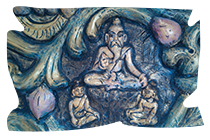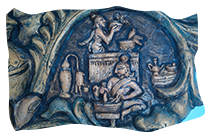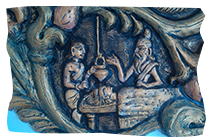TULASI
Botanical Name: Ocimum sanctum L.
Plant Family: Lamiaceae
Common name: Holy Basil
Medicinal Parts Used: leaves, stem, flower, root, seeds and even whole plant
Contains:
Tulsi is rich in minerals like calcium and iron. It also has small amounts of manganese, potassium, and magnesium. Tulsi is extremely rich in vitamin K and it has a good amount of vitamin A and a small amount of vitamin C and folate. Some of the main chemical constituents of tulsi are: oleanolic acid, ursolic acid, rosmarinic acid, eugenol, carvacrol, linalool, β-caryophyllene (about 8%), β-elemene (c.11.0%), and germacrene D (about 2%).
Action:
The Ocimum sanctum L. has also been suggested to possess antifertility, anticancer, antidiabetic, antifungal, antimicrobial, hepatoprotective, cardioprotective, antiemetic, antispasmodic, antihelminthic, analgesic, adaptogenic and diaphoretic actions.
Isolated O. sanctum extracts have some antibacterial activity against E. coli, S. aureus and P. aeruginosa
INDICATIONS:
• Bronchitis
• Bronchial Asthma
• Malaria
• Diarrhea
• Dysentery
• Skin Diseases
• Arthritis
• Painful Eye Diseases
• Chronic Fever
• Insect Bite
• Cold
• Cough








